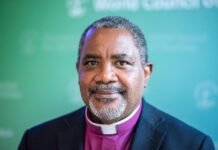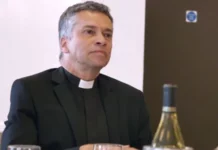I apologise unreservedly for the mistakes made in the process surrounding the handling of the original allegation against Bishop George Bell. The reputation of Bishop Bell is significant, and I am clear that his memory and the work he did is of as much importance to the Church today as it was in the past. I recognise this has been an extremely difficult period for all concerned and I apologise equally to all those who have come forward and shared stories of abuse where we have not responded well.
An allegation against the late Bishop George Bell, originally brought in 1995, was made again in 2013 in the context of a growing awareness of how institutions respond to safeguarding cases. A review carried out by Lord Carlile into how the Church of England handled the case concerning Bishop Bell made a significant number of recommendations, and the Church of England accepted almost all of these.
At the end of 2017 several people came forward with further, fresh information following the Carlile review, and after a thorough, independent investigation, nothing of substance has been added to what has previously been alleged. A statement from the National Safeguarding Team explains the processes involved in reaching this latest decision more fully.
The Church’s dilemma has been to weigh up the reputation of a highly esteemed bishop who died over 60 years ago alongside a serious allegation. We did not manage our response to the original allegation with the consistency, clarity or accountability that meets the high standards rightly demanded of us. I recognise the hurt that has been done as a consequence. This was especially painful for Bishop Bell’s surviving relatives, colleagues and supporters, and to the vast number of people who looked up to him as a remarkable role model, not only in the Diocese of Chichester but across the United Kingdom and globally. I apologise profoundly and unconditionally for the hurt caused to these people by the failures in parts of the process and take responsibility for this failure.
However, it is still the case that there is a woman who came forward with a serious allegation relating to an historic case of abuse and this cannot be ignored or swept under the carpet. We need to care for her and listen to her voice.
The Independent Inquiry into Child Sexual Abuse (IICSA) has already questioned the Church of England over its response to the Bishop Bell case and the review by Lord Carlile. We expect that their report on our hearings will address further the complex issues that have been raised and will result in a more informed, confident, just and sensitive handling of allegations of abuse by the church in the future. We have apologised, and will continue to do so, for our poor response to those brave enough to come forward, while acknowledging that this will not take away the effects of the abuse.
This very difficult issue therefore leaves the church with an impossible dilemma which I hope people with different perspectives on it will try to understand.
Finally, I want to make it very clear that Bishop George Bell is one of the most important figures in the history of the Church of England in the 20th century and his legacy is undoubted and must be upheld. His prophetic work for peace and his relationship with Dietrich Bonhoeffer are only two of the many ways in which his legacy is of great significance to us in the Church and we must go on learning from what he has given to us. I hope that ways will be found to underline his legacy and share the learning from his life with future generations.




Hmm.
Chichester: His prophetic work for peace and his relationship with Dietrich
Bonhoeffer are only two of the many ways in which his legacy will go on
being of great significance to us in the Church and we hope and pray we
can go on learning from what he has given to us.
Canterbury: His prophetic work for peace and his relationship with Dietrich
Bonhoeffer are only two of the many ways in which his legacy is of great
significance to us in the Church and we must go on learning from what
he has given to us.
I am beginning to wonder if Welby holds himself at some fault for not recognizing what was going on at the Iwerne camps or later at Elf Acquitaine. This is not meant to imply that he had anything to do with the crimes committed by leaders of either organization, but rather that he might hold himself to some account for naivety in assuming that his superiors were acting in good faith. Maybe his response to the +Bell case is a form of overcompensation for those events in his own life where he feels some degree of guilt for not seeing what was happening and taking some action.
Justin Welby should resign, but if he does so I think his replacement might be even worst.